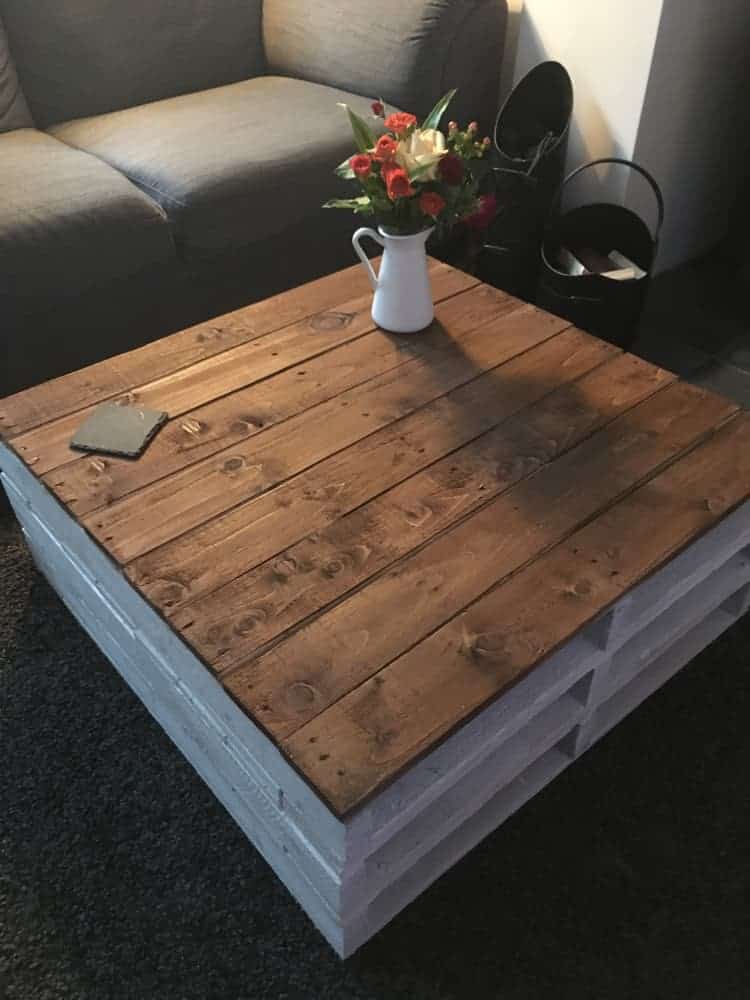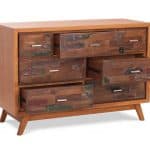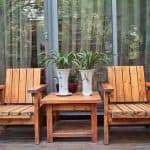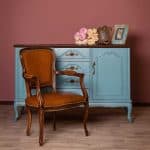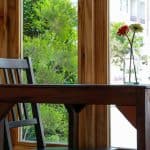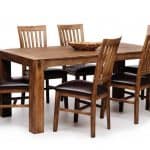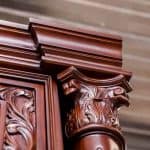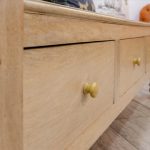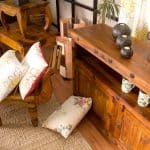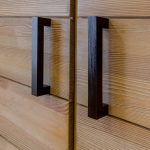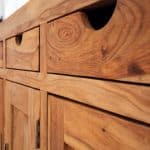Upcycling Furniture FAQ’s discussed by Eco Solutions
Upcycling furniture becoming increasingly popular with new upcycling businesses starting and people doing it at home as something they enjoy and as a hobby. Our Upcycling Furniture FAQ’s will tell you everything you need to know when you find that first piece you want to upcycle.
Everyone wants their home to look amazing and upcycling furniture is a cheap and fun way of doing this, the options and possibilities when it comes to upcycling really are endless. Upcycling is a growing trend as it gives you the ability to produce unique one-off pieces which no one else has, giving the finishing touches to a room in your home or business, and this is why so many more people are trying it out.
Whether it is reclaimed timber or an old cabinet or chest of drawers there really is a beauty in upcycled wood as it can show its natural grain, markings of paint or etchings from its previous life. It’s endless what you can upcycle and the most stand out pieces are normally the most unusual ones.
There are more and more television programmes being aired giving people ideas of how they can upcycle furniture for their homes and gardens and inspiring them to give it a go.
With a little bit of time and by using the right products, you will be amazed how quick and easy it is to transform an old piece of furniture into a chic boutique one-off.
There are some important things to think about before you start and our Upcycling Furniture FAQ’s, Hints and Tips and how you can use our non-toxic home use products will all help you when you start your Upcycling Furniture journey.
What is upcycling?
Upcycling is also sometimes known as creative reuse and is when an old product which is no longer wanted is transformed it into something that is wanted and will be used again. It can be waste materials, useless or unwanted products, or furniture being upcycled into something new which looks better. Upcycling is a lot cheaper than buying something new and also helps to save the environment.
What is furniture upcycling?
Upcycling is a form of recycling that focuses on transforming an unwanted item or material into a quality, visually improved and valued product. It can be an old piece of furniture that you strip back and repaint which turns it into an individual furniture piece that would otherwise have gone to landfill. Upcycling has become really popular in the last few years as the focus on protecting the environment is increasing and fashion and decor trends are ever-changing.
How does upcycling helps the environment?
The environmental benefits of upcycling are huge as it reduces the number of products that are discarded and taken to landfill every year, as well as reducing the need to produce new materials and products. All of this means a reduction in air pollution, water pollution and greenhouse gas emissions.
How does upcycling work?
Upcycling transforms materials that would otherwise be destroyed or taken to landfill into new quality products of higher value and environmental purpose. Reusing waste and not destroying it takes far less energy compared to breaking it down to be remade into something new or taking it to our ever-increasing landfill sites across the world.
How is upcycling different from recycling?
Upcycling turns waste products into a material or product that is of a higher quality and into something that will be used again rather than being thrown away and being put into landfill, compared to recycling which turns waste into another reusable material or product. When you recycle an item, it is sorted into product type and goes back into production to be transformed into a new and different item.
The benefits of upcycling can’t be played down as it reduces the amount of waste that we discard and the need to produce new or raw materials again to replace it, resulting in a reduction in air pollution, water pollution, landfill use and greenhouse gas emissions.
What are the benefits of upcycling?
- Conserves the environment – it reduces CO2 emissions by using old materials instead of making new ones (for every ton of discarded textiles used again, 20 tons of CO2 is prevented from entering the atmosphere)
- Reduces the amount of waste that goes to landfills
- Conserves limited resources
- Reduces the cost of reproduction to replace items that have gone to landfill
- Supports local industries and businesses
- Encourages creativity and innovation
- You can make money from upcycling
- You can save money by upcycling
- You can keep the products you love
How do you start upcycling furniture?
It really isn’t difficult to start to upcycle, you need to find a piece of furniture you want to upcycle, read our hints and tips of how to do it, use the right products and get started.
What does upcycled mean?
Upcycled simply means; discarded objects or materials reused in such a way as to create a product of higher quality or value than the original.
What is downcycling?
Downcycling is a recycling practice that means breaking an item down into its component elements or materials and reusing them to make (normally) a lower-priced/value product. Examples of the downcycling process are; downcycling plastic bottles into carpets or fleece fibres and later turning fleece and carpeting materials into plastic lumber products. The things we put into our weekly recycling bins are taken to a recycling sorting location, sorted into recycling types and then broken down (downcycled) to be reused to make another product which prevents it from going to landfill
What is the purpose of upcycling?
Upcycling creates a useable product from waste or unwanted items, it is also in the form of adapting and improving an existing product in some way to make it better, usable and to add value. The purpose of upcycling is about reducing waste, improving the efficiency of the resources we use, saving money and having fun.
Is upcycling better than recycling?
Both are very important in the world we now live in where the amount of packaging we are producing exceeds what we are able to safely dispose of. Both recycling and upcycling reduce the amount of waste that ends up in landfills around the world and both reduce the need for the production of new materials. This means less pollution and carbon emissions produced by manufacturers around the world.
How does upcycling reduce waste?
Upcycling reduces what would otherwise go to landfills, it reduces the cost of recycling involved in sorting, washing, composting, producing new materials and landfilling. Reducing the amount of waste conserves our resources and reduces pollution, including greenhouse gases that contribute to global warming.
What is repurposing materials?
Repurposing is the use of something for a purpose by modification or using the item in a new way from its original purpose. Materials that are frequently repurposed include steel, aluminium, plastics, and electronics. Examples of repurposing include using tires as boat fenders and steel drums or plastic drums as feeding troughs or composting bins. The list of materials and items that can be repurposed is huge and ever-increasing as we focus on reducing the amount of waste that goes to landfill.
Is there a difference between upcycling and repurposing?
Yes, upcycling converts what would otherwise be waste materials or useless products into new materials or products which are better quality and into something that will be used again. Repurposing reuses a material or product so its use is different on a long-term basis without altering it.
Why upcycling is important?
Upcycling reduces the amount of waste that is thrown into landfills across the world. Some waste materials thrown into landfills contain dangerous chemicals, which cause soil degradation. These chemicals find their way into our water sources and cause water pollution impacting animals, wildlife and our food sources. Upcycling offers an environmentally friendly alternative to dealing with waste.
Why is upcycling so popular?
Upcycling is becoming more and more popular and there are so many benefits to it including:
- Reducing the strain on the environment – reducing CO2 emissions by using old materials instead of making new ones (for every ton of discarded textiles used again, 20 tons of CO2 is prevented from entering the atmosphere)
- Reducing the amount of waste that goes to landfills
- Conserving limited resources
- Reducing the cost of reproduction to replace items that have gone to landfill
- Supporting local industries and businesses
- Encouraging creativity and innovation
- Saving money
- Making money
- Keeping the products you love
Why is upcycling so good for kids?
Kids love being creative and getting involved and this is what upcycling is all about. Taking an unwanted item and changing it into something which is fun, bright and usable again will give them a huge amount of pleasure. It teaches them about upcycling, recycling and the impact it has on the environment, changing their perspective and focus for the future. Upcycling furniture for kids bedrooms is brilliant and even more brilliant if they help you to transform it, you will have so much fun together doing it.
How can you upcycle for profit?
You can make really good money from upcycling and more and more people are turning something they love doing into a profitable business for themselves. It’s all about having the space to upcycle, the right products, good quality items, a creative eye and a way to showcase your upcycled items to prospective customers.
Are there upcycling classes available?
There are now more and more upcycling classes becoming available in your local area as its a fast-growing trend for people that enjoy and love doing it as well as people making a profitable business out of it. Look out for them in local magazines, facebook pages and local colleges.
Upcycling for you
Upcycling enables you to create your own bespoke look and feel in your home. Lots of people are now mixing and matching decor styles; adding chich boutique furniture with modern and contemporary decor and upcycling furniture enables you to take an old sideboard, strip it back and paint it a bright colour, neutral tones or waxing it so you see the natural grains and older wood. Add some new handles and you’ll have a brand new furniture piece that is individual and stands out, at a much cheaper price compared to buying new or something which has bee upcycled by someone else.
You can incorporate what you already have in your room by picking up on an existing colour and using it for your upcycled furniture piece and this creates a cohesive colour scheme. Decor styles can use flat finishes and velvet depths by using milk or chalk paint which complements a shabby chic look. Traditional decor can be waxing and varnishing which gives a natural wood finish, and for modern decor, use high gloss paint with glass or glittery handles and knobs.
Before you go out looking for furniture think about the type of furniture you need and want and where in your room you will put it. You often won’t find what you are looking for straight away so be patient and go to car boots sales, recycling centre shops and charity furniture shops regularly and eventually, you will find something which may not be what you first envisioned, but most often, it will turn out and look better.
There is now a big used furniture market online and people advertise items on local Facebook pages, Gum Tree and eBay. Again you have to visit these sites regularly to find those perfect pieces which can often be a bargain or offered for free if you can collect.
Always check if a piece of furniture is structurally sound before you buy it and think if you will be able to easily repair it before you change its look.
Look at upcycling blogs online, Pinterest and interior design magazines for inspiration and ideas.
Try and see past old, tired pieces of furniture which may have scratches or marks and think about how you can upcycle it as well as what you want it to end up looking like. Be brave as often taking chances with your upcycling pieces will pay off the most. If it doesn’t come out as you want it the first time then strip it back and try a different paint or wax. Sometimes the smallest details can have the biggest impact on upcycled furniture; by adding a secondary colour on trims, moulding insets or an outer edge that ties in with other colours in your room can make a big statement and make your piece stand out. Mixing materials and finishes give an amazing look for upcycled furniture.
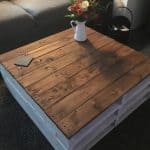 When you have found your first piece of furniture you want to upcycle
When you have found your first piece of furniture you want to upcycle
Prepare everything you need
Remember planning is always key and having an organised space which is big enough, and the right materials and products from your starting point will really help.
Cover your floor with a dust sheet before you start as there will be lots of dust and drips whilst you upcycle.
Research different upcycling techniques and finishes to ensure you get the final look you want. Buy the materials and products and plan when you are going to do each stage so you don’t rush it as this can end in disaster.
Use Eco Solutions Home Strip Paint & Varnish Remover to remove any finish you want to easily and quickly get rid off.
Sanding lightly after this will help ensure your finish to go on evenly and last. Dust off your furniture well before you apply your first coat of finish. A foam brush can be better for lots of furniture paints as they are designed to absorb and hold different types of paints, stains, and urethanes. They give a smooth finish and are low in price.
Your first coat of finish, whether it is wax, stain, varnish or paint should be thin and be prepared to add 2 or 3 more coats after it has dried if you need to. The beauty of upcycling is you can add more coats or leave it as it is if you love the way it looks, it really is your decision. Always leave enough time for your furniture to dry thoroughly before you paint, stain varnish or wax and leave enough time in-between coats.
Chalk paints are great for painting over a dark stain or veneer and don’t need a primer giving a smooth all-over coverage. You should apply a minimum of two to three thin layers of paint and finish with a layer of varnish or furniture wax which will protect the paint from knocks and marks.
Try upholstering new chairs and painting or staining the wood frames, you will see a huge difference and its actually quite easy once you get started.
What is the Best Paint Remover?
Eco Solutions Home Strip Paint & Varnish Remover is the best paint and varnish stripper and is ideal for use in the home and for those upcycling projects. Most DCM-free paint strippers have just replaced one hazardous solvent with another, however, Eco Solutions patented technology removes the hazardous solvent content and replaces it with water.
Why is Eco Solutions Home Strip Paint & Varnish Remover safer than traditional Paint Removers?
- Water-based
- Tough, not toxic
- Non-hazardous
- Non-toxic
- Non-caustic
- PH neutral
- No fumes
- No skin burns
- No ventilation required
- Non-flammable
- Non-combustible
- Suitable for use around people with respiratory problems such as asthma sufferers
- Working wet system
- Ideal for removal of lead-based paints
- No H (hazard)
- No P (precautionary) statements on the label
- Environmentally safe
What are the Benefits of Eco Solutions Home Strip Paint & Varnish Remover?
- It is suitable for use on wood, metal and masonry
- It doesn’t create dust as sanding does
- Rapid and effective paint removal
- It won’t scratch the surface as sanding does
- You can get into awkward areas compared to sanding
- It is gentle on wood and won’t damage its surface
- It removes the paint in the grain of the wood and doesn’t damage it
- It doesn’t discolour surfaces
It can be used on all types of surfaces including wood (hard and soft), Marble, Stone, Brick, Concrete, Plaster, Ceramic Tiles, GRP, Aluminium, Brass, Cast Iron and other soft metals.
It removes; Lead-based paints, Oil-based paints, Solvent-based paints, Water-based paints & emulsions, Polyurethanes, Stains, Varnishes and waxes, Intumescent paints, Rust-preventative surface coatings.
Eco Solutions Home Strip Paint & Varnish Remover is quick and easy to use and saves the hard work from repeated sanding, dust and fumes when you are upcycling furniture.
Eco Solutions Home Strip Paint & Varnish Remover review
How to use Eco Solutions Home Strip Paint & Varnish Remover
- Put gloves on and use an old or cheap paintbrush to coat the wood with a liberal amount of Home Strip Paint & Varnish Remover, the thicker the coating the better
- Depending on the size of your project it can take just 5 minutes to apply the product
- Leave it to work its magic
- Just 45 minutes later you can start the next stage
Removing the Varnish or Paint on your Upcycling Furniture Project
- You will need a bowl of warm soapy water (washing up liquid is fine)
- Take a stainless-steel scouring pad, the same as you would use on a saucepan and scour the surface all over to expose the wood
- You will start to see the natural grain of the wood as the varnish comes off and as you work over the wood you can wipe it with a dry cloth
- Be aware it will dry back almost 3 times lighter
- Home Strip Paint & Varnish Remover gets into the grain of the wood so when you scour it you will see the woods natural grain come through
- Any lumps and bumps of varnish will be removed
- Giving a good scour and rub doesn’t damage the grain or the wood so don’t be afraid to do this
- You can leave it on longer than 45 minutes and it won’t damage it. Even 24 hours later is fine. If the Home Strip Paint & Varnish Remover has dried when you go back to it just spray it with water to reactivate it before you rub it down with the warm soapy water and scourer
- The wood will dry out properly in approx 1.5 hours but we advise that you leave it 24 hours if you are waxing, varnishing or repainting it again
That’s it you are done, it’s that easy. You have stripped that old piece of furniture quickly and easily with no fumes or skin burns and you are halfway through doing your first Upcycling Furniture project to make it beautiful again.
Where can I buy Home Strip Paint & Varnish Remover?
Trade Strip can be ordered through Brewers, Buildbase, Jewsons, Travis Perkins, or for aerospace +Cromwell/Med-Lab. You can find our list of stockists here.

